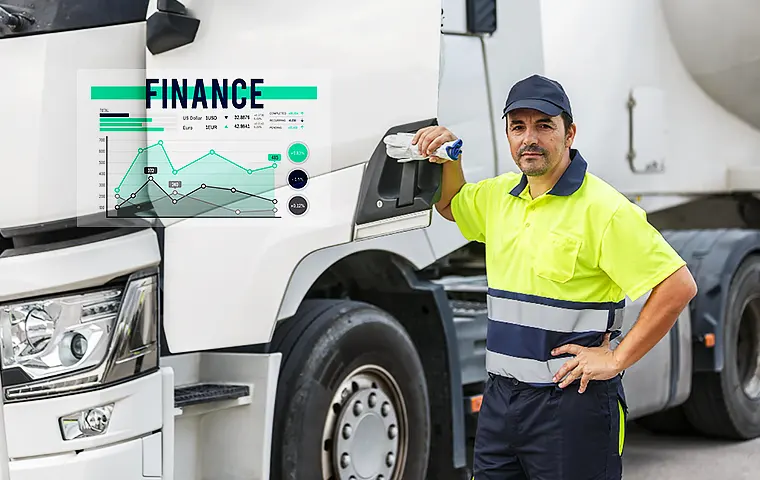Today's environment emphasizes environmental sustainability in business. This focus is both a trend and a necessity for long-term success. Fleets today must align the Total Cost of Ownership (TCO) with sustainability goals. This challenge presents a unique opportunity to reduce costs. At the same time, these changes can help fleets positively impact the planet.
Below, we’ll explore the intersection of TCO and sustainability in fleet management. We’ll also provide insights on how businesses can optimize both financial and environmental outcomes.
What Is TCO?
TCO is the Total Cost of Ownership. It is a full analysis of all costs related to acquiring, operating, and disposing of a fleet vehicle. This essential metric for effective fleet management is vital to fleet cost analysis. It offers a clear picture of long-term costs beyond the initial purchase price.
TCO includes expenses such as fuel, maintenance, insurance, and vehicle depreciation. Understanding TCO empowers fleet managers to conduct detailed fleet management cost analysis. This practice ensures decisions are informed and strategic.
Understanding TCO in fleet operations helps businesses find chances for cost and efficiency gains. For example, by analyzing TCO, a company can decide to invest in more fuel-efficient vehicles. They would understand how such an investment could reduce overall costs in the long run.
Similarly, understanding the impact of maintenance or operational practices on TCO is vital. This facet helps fleets optimize resources and minimize expenses. Effective TCO management is critical for controlling fleet costs and enhancing environmental sustainability. Fleets may reduce TCO while adopting practices that lower fuel consumption and emissions. In this way, they can contribute positively to sustainability and economic goals.
The Importance of TCO in Fleet Management
TCO offers an essential perspective for fleet managers. Through this lens, they can evaluate their operational efficiency and sustainability. By understanding these costs, managers unlock the potential for significant improvements. They can advance in both financial performance and environmental impact.
TCO data can help managers enact data-driven strategies. These strategies can optimize each vehicle's lifecycle and operational costs. This strategic focus shifts from merely tracking expenses to actively reducing them. It has several benefits for fleets that use it effectively:
- Smarter, more informed fleet decisions.
- Encourages technologies and practices that trim fleet costs
- Aligns with broader sustainability objectives.
In essence, the power of TCO lies in its ability to inform and transform fleet management strategies. Fleets can prioritize vehicles and practices that offer the best value over their lifetime. In return, businesses can achieve a dual win. They minimize environmental footprints while maximizing financial savings. This approach ensures the fleet contributes to a company's bottom line and green initiatives.
Integrating Environmental Sustainability
Environmental sustainability in business involves adopting practices that reduce environmental impact. This is particularly true in fleet operations. It frequently includes optimized fuel use, eco-friendly vehicles, and efficient route planning. By integrating sustainability principles into fleet management, companies can lower their carbon footprint. At the same time, they can reduce fleet costs surrounding fuel consumption and vehicle maintenance.
Strategies for Balancing TCO and Sustainability
Finding a balance between TCO and sustainability can be a challenge. Strategies for fleet management cost analysis strategies are as varied as the businesses that employ them. Here are a few broad suggestions your fleet could explore to help get you started:
- Fuel Efficiency Focus: Prioritize vehicles with better fuel efficiency. You might also consider alternative fuel vehicles. This reduces both fuel costs and emissions, directly contributing to sustainability goals.
- Regular Maintenance: Implementing a proactive maintenance schedule ensures vehicles operate efficiently. It reduces unexpected repairs and extends vehicle life, optimizing the fleet's TCO.
- Eco-Friendly Vehicle Investment: The upfront cost of hybrid or electric vehicles may be higher. Yet the long-term savings in fuel and maintenance can substantially lower the fleet's TCO.
- Efficient Route Planning: GPS and fleet management software can optimize route planning. These tools can significantly cut down fuel consumption and emissions. They can also enhance sustainability and reduce costs.
- Driver Training Programs: Educating drivers on green driving techniques can increase fuel efficiency. This directly impacts both fleet costs and environmental sustainability.
The Dual Benefit of Sustainability and Cost Management
The integration of environmental sustainability in fleet management goes beyond reducing emissions. It's also a strategic approach to cost management. A focus on sustainable practices can offer significant reductions in fleet costs. They can enjoy lower fuel consumption and reduced maintenance expenses. Moreover, adopting green practices enhances the company's brand image. It appeals to environmentally conscious consumers and stakeholders.
The Role of Technology in Enhancing TCO and Sustainability
Technology plays a pivotal role in balancing TCO and sustainability in fleet management. Fleet management software and telematics provide valuable fleet data. This can help with optimizing routes, monitoring fuel consumption, and managing vehicle maintenance. These tools enable fleet managers to make data-driven decisions. They can enhance both operational efficiency and environmental performance.
Azuga: The Solution for TCO and Sustainability Challenges
There's a delicate balance between operational costs and environmental sustainability in business. Navigating this give and take is a complex challenge. However, fleets can meet this challenge head-on with the right technology partner.
Azuga stands at the forefront of fleet management technology. We offer cutting-edge solutions to optimize TCO while advancing sustainability goals. Our innovative fleet management software and technologies help businesses meet challenges. They enjoy significant cost savings, reduce their carbon footprint, and enhance operational efficiency.
The industry is moving toward a more sustainable future. Partnering with Azuga can allow your business to exceed financial and environmental objectives. Our suite of tools and services addresses the unique needs of modern fleets. We’ll help you stay ahead of the curve in cost management and environmental responsibility.
Let Azuga be your guide to a more sustainable, cost-effective fleet management strategy. Together, we can pave the way towards a greener, more prosperous future. Book a demo to learn more today!








